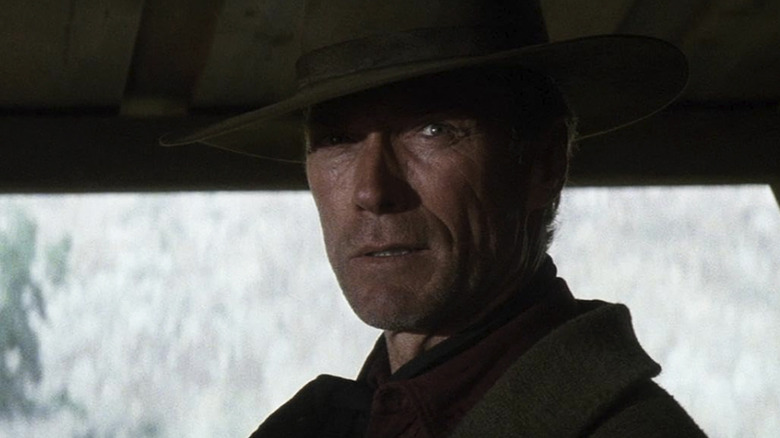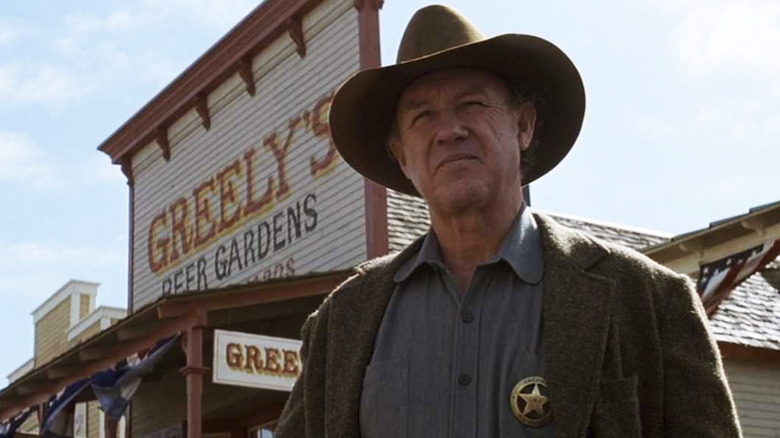How Clint Eastwood Convinced Gene Hackman To Star In Unforgiven
We've written about Clint Eastwood's 1992 masterpiece, "Unforgiven," a lot because you can never talk enough about one of the greatest Westerns ever made. As someone who launched his career by starring in Westerns, Eastwood was ballsy enough to make one as a supposed farewell to the genre in which he deconstructed every single story beat and character trope these movies usually thrived on. "Unforgiven" is no ordinary genre piece, and Eastwood instantly recognized that, both as actor and director, after reading David Webb Peoples' script.
There are no real heroes in "Unforgiven." There are people with flaws, sins, regrets, and power greater than they deserve. Evil has many faces in this film, and sometimes the ugliest, scariest, and harshest visage hidden under beards and telling scars isn't the one you should really be worried about. It's the clean-shaven, smirking, and overly confident profile of Sheriff Little Bill Daggett (Gene Hackman) that gives you a chilling dread running down your spine every time he exerts his authority over the townsfolk and the visitors who stop by Big Whiskey, the place he rules with a firm hand.
Eastwood knew how vital that villainous role was to the story, and despite Hackman initially turning it down, he pressed on to convince the actor that this part was truly different and worthy of Hackman's time and effort.
Making a statement against violence is what convinced Hackman to appear in Unforgiven
Given his legendary and respected status in Hollywood, Eastwood could've easily found another man to play Little Bill. But he persisted in getting Hackman in one way or another (and the fact that the two never worked together up until that point might've been a factor) because he was convinced Hackman would do a more than excellent job given his extraordinary talents. In an interview with the American Film Institute, Eastwood spoke about how he got Hackman to reconsider and eventually portray the character in "Unforgiven":
"I submitted it to Gene Hackman, and Gene I'd known for many years, but we never worked together. He was in a mood at that time. He said, 'I don't want to do any more violent pictures, I'm tired of it. I've been involved with a lot of them, I'm really tired of it." And I said, 'You know, I know exactly where you're coming from. But read it again, because I think we can make a great statement against violence and killing, if we do this right. Of course, it's all in the execution. You gotta execute it right or else nothing means anything then.' So he did it. He re-read it, he came back and said, 'Yeah, OK, I'll do this.'"
Of course, now we know he was the perfect guy to do it — a match made in heaven. Of his two Oscars (which feels shocking to acknowledge every time I write it down), the second one came in 1993 for Little Bill, a character that has since earned its place in the pantheon of the best Western villains of all time.

